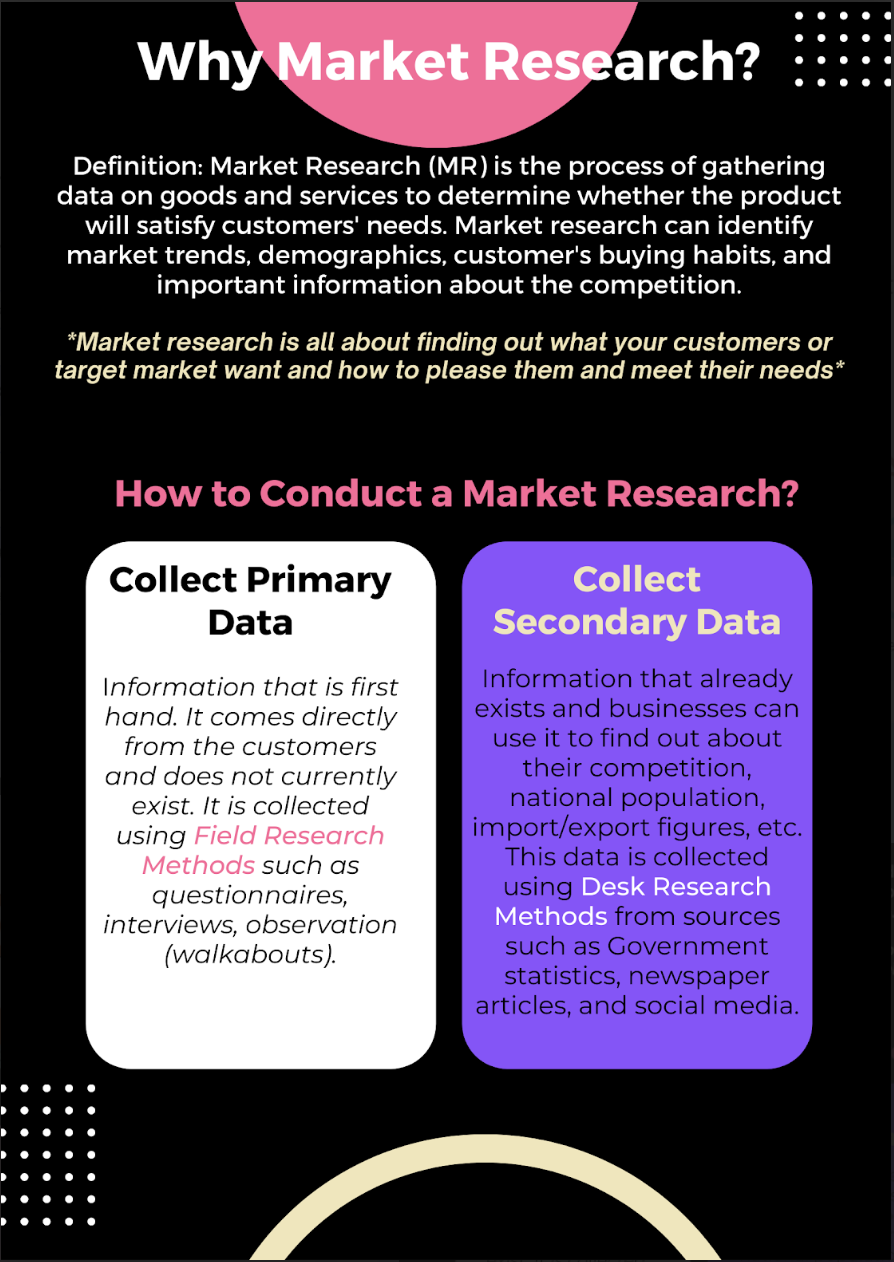Term 2 Week 3-4
Section outline
-
Market Research
Learning Intentions
- Investigate the meaning and examples of research-related terms
- Explore how and why companies gather information on us as consumers
- Can define and explain, with examples, market research-related terms
- Am aware of how companies gather information about my buying habits.
Market research is defined as the process of gathering data on goods and services to determine whether the product or service will satisfy customers' needs.
To find out the needs and wants of their customers or consumers, businesses invest in market research to collect this information.
Types of information
Market research seeks to collect two basic types of data:
Quantitative: tells us “how many.” This data can be measured. It can measure how customers think, feel or act in regards to a particular product or service. For example how many people prefer coke to coke no sugar; How many people would be willing to pay a certain price for a product or service etc.
Qualitative: answers questions where an opinion or judgment is necessary. It helps businesses to know the 'why' or 'why not' in regards to their products and services. Qualitative research is important for gaining a broad understanding of the reasons and motivations behind consumer decisions. For example, asking consumers:
- What do you like about our product?
- What could we do to improve this product?
- Why wouldn't you buy this product?
Businesses use two types of data collection to gather this information
Primary Market ResearchThis is sometimes referred to as "field research." It involves the collection and collation of original data from potential or existing customers. Field research includes conducting;
- Questionnaires
- Interviews
- Consumer panels
- Focus Groups
- Observations
There are business that specialise directly in collecting primary market research for other businesses. Whether businesses conduct this research themselves or pay someone else to do this, it can be a costly and lengthy process. However, market research can identify market trends, demographics, psychographics, behavioural segments, economic shifts, customer's buying habits, and important information that may give it a competitive advantage. It can also help a business to know what type of products or services would be profitable to introduce in the market.
For existing products, it can help the business to know where to allocate its funds and resources efficiently. It enables a company to know if it has been able to satisfy customer needs and whether any changes need to be made in the development, packaging, advertising, delivery or the product itself.
Secondary Market ResearchThis is sometimes referred to as "desk research." It involves using information that has already been collected by other agencies or sources.
Can be from both internal (within the business itself) or external sources.

GROUP TASK:
In your groups, conduct some primary market research in our class to determine the possible success of a proposed new product for McDonalds. For example, a new burger, combo, sundae, drink OR any idea your group may have.
- Describe (in detail) your proposed target market for the new product
- Describe the actual product (ingredients etc.)
- Be sure to collect both quantitative and qualitative data.
- Summarise your results on a doc or slideshow to share your findings. According to your research, will this idea be successful?
- Facebook have just been threatened with a fine in Belgium for doing something to do with gathering data on people - describe what.
- Supermarkets and other shops have loyalty cards - explain why this is relevant to market research?
- Describe other ways that companies find out about your buying habits?
- Facebook loses privacy case, faces fine of up to $125,000 million
- 6 ways retailers track your spending habits
- Tracking customers will be the norm
- Technologies to track people

